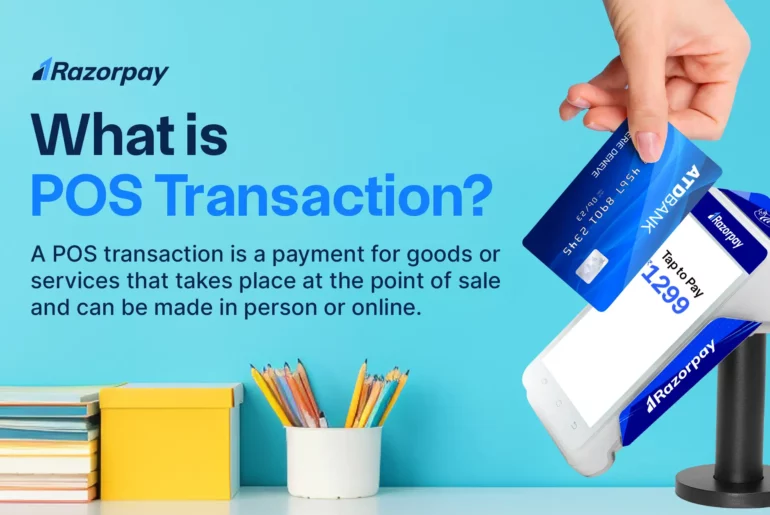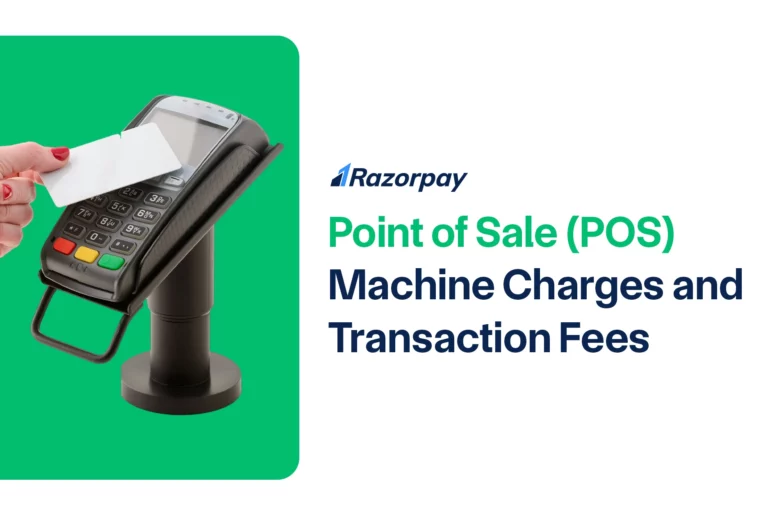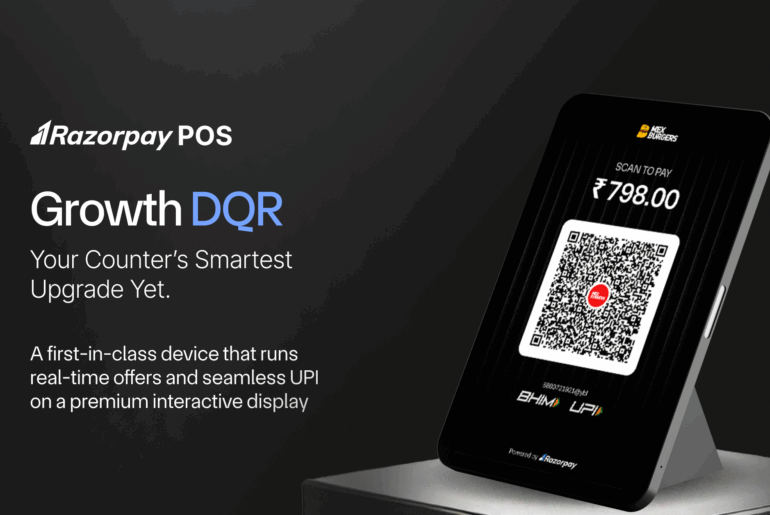Table of Contents
What is a Cloud-Based POS System?
A cloud-based point of sale (POS) system is an online solution that handles payments and transactions online and stores POS data on external servers located in the cloud rather than on local servers.
Cloud-based POS uses the Internet to store and manage data, making it accessible from any device with Internet access. This makes it ideal for businesses with multiple locations, as it centralises operations on a single platform and provides real-time access to sales data, inventory management, and customer information.
Related Read: Types of Point of Sale (POS) System for your Business
Key Features of Cloud-Based POS Systems
1. Remote Accessibility
- One of the standout features of a cloud-based POS system is its remote accessibility. Whether you’re on-site, at home, or traveling, you can access the cloud based POS system from any device with an internet connection.
- This feature is particularly advantageous for businesses with multiple locations, as it allows for real-time monitoring and management across all sites.
2. Automatic Updates
- Cloud based POS systems automatically update their software, ensuring you always have the latest features and security enhancements.
- This eliminates the need for manual updates, saving time and reducing the risk of vulnerabilities due to outdated software.
- By staying up-to-date helps maintain optimal performance and compliance without the hassle.
3. Data Security and Backups
- Data security is critical for any business, and cloud POS systems are designed with robust security measures.
- These systems often include encryption, secure access controls, and regular data backups.
- The cloud-based nature of these systems also ensures that your data is stored off-site, protecting it from local hardware failures or disasters.
4. Scalability
- As your business grows, your POS system needs to scale with it.
- Cloud-based POS systems are inherently scalable, allowing you to easily add new features, users, or locations without significant investment in new hardware.
- This flexibility makes adapting to changes in business size and transaction volume easier.
5. Integration with Other Tools
- Cloud-based POS systems can seamlessly integrate with other business tools, such as accounting software, eCommerce platforms, and inventory management systems.
- This integration ensures a smooth data flow across different aspects of your business, reducing manual work and improving overall efficiency.
6. Ease of Use and Pricing
- Cloud based POS systems are designed to be user-friendly, making them easy to set up and operate.
- Additionally, they often come with flexible pricing models that can scale with your business needs, providing cost-effective solutions as you grow.
Related Read: POS Machine Charges and Fees
Key Components of Cloud Based POS Systems
Cloud based POS systems consist of hardware and software components that streamline POS transactions and offer valuable business insights.
Here’s an overview of the key elements:
1. Hardware Components
- POS Terminals: Cloud based POS systems operate on various devices including tablets, smartphones, or dedicated terminals. This flexibility supports diverse business environments, from retail stores to mobile setups.
- Barcode Scanners: These devices facilitate quick and accurate product identification, enhancing checkout efficiency and inventory management.
- Receipt Printers: Essential for generating printed receipts, receipt printers integrate with the cloud-based POS to offer seamless transaction documentation for both customers and your records.
- Cash Drawers: Even in a digital age, cash transactions remain common. Cash drawers connect with the POS system to manage cash securely and efficiently.
- Card Readers: These readers allow businesses to accept various card payments, including credit, debit, and contactless payments, ensuring a smooth transaction experience for customers.
- Mobile POS: Mobile POS systems connect to cloud based platforms, providing access to real-time data and POS functionalities from mobile devices.
Related Read: What is the Difference Between Barcode and QR Code?
2. Software Components
- Point of Sale Software: The core of any POS system is that the software manages sales, processes transactions, and interfaces with customers and your business data.
- Inventory Management: Cloud-based POS software often includes robust inventory management features that help track stock levels in real-time, set reorder alerts, and prevent stockouts.
- Customer Relationship Management (CRM): CRM features allow you to store customer data, track purchase history, and personalise marketing efforts. This is essential for building long-term customer loyalty.
- Payment Processing: Cloud-based POS systems handle payment processing seamlessly, whether it’s through card payments, digital wallets, or other payment methods, reducing the need for separate payment solutions.
- Reporting and Analytics Tools: These tools offer valuable insights into sales performance, customer behaviour, and inventory turnover. By leveraging cloud-based reporting, you can access real-time data from anywhere and make informed business decisions.
3. Integration with Other Systems
- Cloud based POS systems integrate smoothly with other business software, such as accounting tools, eCommerce platforms, and loyalty programs.
- This integration allows data to flow automatically between systems, reducing manual entry and improving overall operational efficiency.
4. Cloud Infrastructure
- The backbone of a cloud-based POS system is its cloud infrastructure, which includes servers and data storage managed by the POS provider.
- This infrastructure ensures your POS data is securely stored, backed up regularly, and accessible from any device with an internet connection.
- The cloud-based nature also reduces the need for expensive local servers and IT maintenance, offering a cost-effective and scalable solution.
Advantages of Cloud Based POS System
1. Ease of Integration
- Cloud-based POS systems integrate seamlessly with other business tools like accounting software, eCommerce platforms (through eCommerce POS Integration), and CRM systems.
- This connectivity optimises your operations by ensuring real-time updates across various functions, reducing the need for manual data entry.
2. Remote Accessibility
- You can access your cloud based POS system from anywhere with an internet connection.
- This improves guest experience and allows for streamlined data management, whether on-site, at home, or managing multiple locations.
3. Minimal Training Required
- Cloud based POS systems are generally user-friendly, with intuitive interfaces that require minimal training.
- This lets you implement the system quickly and start operations without significant downtime or staff learning curves.
4. Cost-Effective
- The subscription-based pricing model of cloud based POS systems is ideal for startups and businesses with limited budgets.
- You pay a regular fee instead of a large upfront investment, making it easier to manage expenses and scale as your business grows.
5. Data Security and Backups
- Since data is stored on the cloud, you don’t need to worry about manual backups.
- Cloud based systems automatically back up data, ensuring it’s secure and reducing the administrative burden associated with data storage.
Disadvantages of Cloud Based POS
1. Connectivity Issues
A cloud based POS system is dependent on internet connectivity. Hence, Server downtime or internet outages can disrupt sales and operations, leading to potential losses, especially during peak business hours.
2. Limited Support Options
Many cloud based POS providers offer support primarily through online channels like chat or email. While convenient, this can pose challenges when you need immediate troubleshooting or hands-on assistance.
3. Rising Subscription Costs
As you add more features or expand your business, the subscription costs of cloud based POS systems can increase. Over time, this may impact your long-term budget, particularly if your business grows quickly.
4. Vulnerability to Power Outages or Server Failures
Cloud based systems are vulnerable to power outages and server failures, which could disrupt operations. In worst-case scenarios, this might lead to loss of sales data, affecting your ability to manage inventory and finances effectively.
5. Reliance on Internet Connectivity
Businesses with poor network coverage or unstable internet connections may face challenges using cloud based POS systems consistently. The dependence on connectivity makes it critical to have a backup plan for offline operations.
Cloud Based POS System vs Traditional POS Systems
Features |
Cloud Based POS System |
Traditional POS System |
|
Technology & Infrastructure |
Operates on cloud servers, requiring an internet connection. Data is stored online. |
Installed locally, with data stored on-site and no need for internet connectivity. |
|
Flexibility & Accessibility |
Allows remote access from any location with an internet connection, making it easier to manage your business on the go. |
Requires on-site access, limiting management to the physical location of the business. |
|
Updates & Maintenance |
Receives automatic software updates, managed by the service provider, ensuring the system stays up-to-date. |
Manual software updates are needed, which can result in outdated systems if not regularly maintained. |
|
Data Security & Backups |
Built-in security features and automatic backups provide strong protection against data loss. |
Relies on local security measures, with backups requiring manual intervention, making them more susceptible to hardware issues. |
|
Scalability |
Easily scalable, allowing for seamless expansion with minimal effort, whether you need more features, users, or locations. |
Scaling up requires purchasing additional hardware and software, leading to higher costs and complexity. |
|
Integration with Other Systems |
Seamlessly integrates with platforms like accounting, CRM, and eCommerce systems. |
Limited integration capabilities, often requiring manual data entry or costly custom solutions. |
How to Select the Best Cloud Based POS System for Your Business?
1. Assess Your Business Needs
Before selecting a POS system, identify your specific requirements and goals. Consider your business size, industry, and unique operational needs. This will help you choose a system that aligns with your business processes and enhances productivity.
2. Key Features and Functionality
Look for essential features that meet your business needs:
- Inventory Management: Ensure the POS system has robust inventory tracking and management tools to keep your stock levels accurate.
- Customer Relationship Management (CRM): A good CRM feature helps manage customer data and personalize interactions.
- Payment Processing: The system should support various payment methods, including credit cards, mobile wallets, and contactless payments. Robust payment processing capabilities ensure quick and secure payment handling.
- Reporting: Advanced reporting tools will provide insights into sales, customer behaviour, and inventory performance, aiding in better decision-making.
- Ease of Use: The system should be easy to set up and use, with a user-friendly interface and features like drag-and-drop functionality.
- Customization: Look for a system that allows for brand customization, such as incorporating your logo.
3. Hardware and Software Compatibility
- Ensure the POS system is compatible with your existing hardware and software infrastructure.
- Check if it integrates seamlessly with other systems you use, such as accounting software and eCommerce platforms.
- Compatibility reduces the need for additional investments and ensures smoother operations. Also, consider the need for EPOS system if you have a food truck or pop-up shop.
4. Cost and Return on Investment
- Evaluate the total cost of ownership, including subscription fees, hardware costs, and any additional charges.
- Cloud Based POS systems are often more affordable than traditional systems as they don’t require hardware purchase or maintenance, though some may have monthly fees.
- Compare this with the potential benefits of the POS system, such as improved efficiency, reduced errors, and enhanced customer satisfaction.
- Calculate the expected return on investment to ensure the system is financially viable.
5. Scalability and Flexibility
- Choose a POS system that can grow with your business. It should be scalable to accommodate additional features, users, or locations.
- Flexibility to adapt to changing business requirements is essential for long-term usability and cost-effectiveness.
6. Vendor Support and Training
- Reliable customer support and comprehensive training resources are crucial for smooth implementation and operation.
- Ensure the vendor offers responsive support channels and detailed training to help your staff get the most out of the POS system.
7. Security and Data Protection
- Assess the security features of the POS system, including encryption, access controls, and compliance with data protection regulations.
- Since cloud based POS systems store data in the cloud, ensure the system offers strong security features to safeguard sensitive customer and business data, reducing the risk of breaches and ensuring compliance with industry standards.
Conclusion
Cloud based POS systems like Razorpay POS provide hospitality businesses with cost savings, increased productivity, and ease of use. Their subscription model cuts hardware and maintenance costs, while remote access and real-time updates enhance efficiency. Integration with other tools and user-friendly interfaces simplify implementation. Investing in such a system helps modernize and improve business operations.
FAQs
1. How does a cloud based POS system work?
A cloud based POS system stores and processes data on remote servers accessed via the Internet. Transactions and business operations are managed through web-based applications, allowing real-time updates and remote access from any device with an internet connection.
2. Why is cloud based POS better?
Cloud based POS systems offer benefits like lower upfront costs, automatic updates, and remote accessibility. They streamline operations by integrating with other business tools, providing real-time data, and reducing the need for extensive hardware and maintenance.
3. How much does a cloud based POS system cost?
The cost of a cloud based POS system varies based on the provider and features. Typically, it involves a monthly or annual subscription fee, including software, support, and updates.
4. What is cloud POS vs on-premise POS?
Cloud POS systems operate over the internet, storing data on remote servers, while on-premise POS systems are installed locally on your business’s hardware. Cloud POS offers remote access and automatic updates, whereas on-premise POS requires local management and maintenance.
5. What is the difference between legacy POS and cloud POS?
Legacy POS systems are traditional, on-premise solutions with local hardware and software, requiring manual updates and maintenance. Cloud POS systems are modern, internet-based solutions that offer remote access, automatic updates, and integration with other digital tools.


